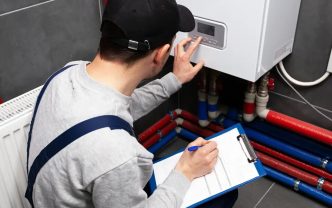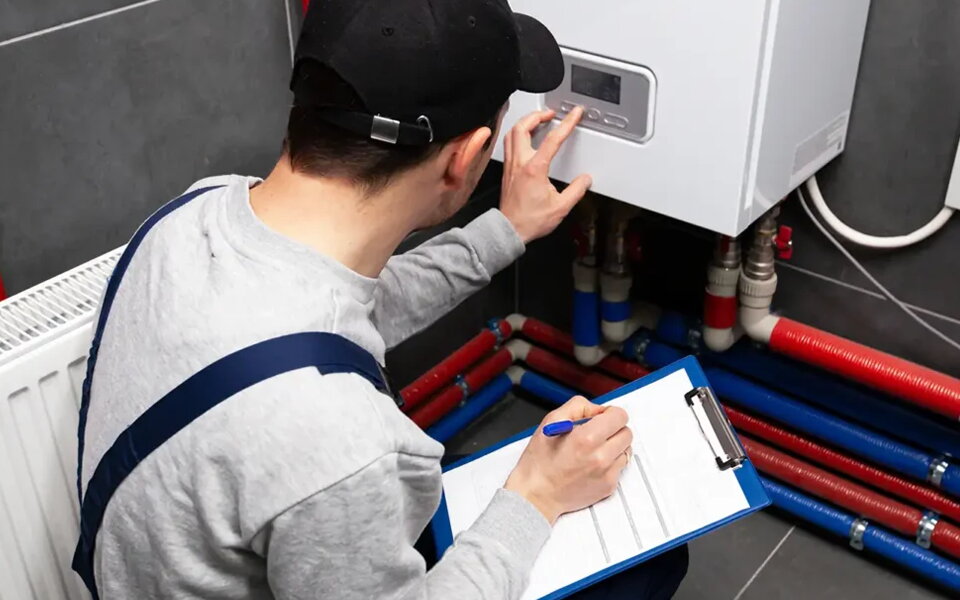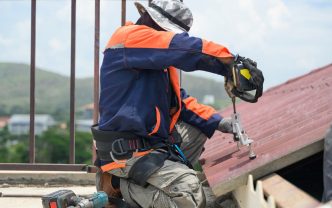Palmdale’s Hidden Backbone: Why Plumbing Sets the Tone
Every wonderful home has a quiet, reliable, and mostly undetectable rhythm. Plumbing is the unsung hero of Palmdale’s mid-century and new neighbourhoods. Most people underestimate the cost of pipes behind walls and slabs that determine comfort. When inspections are routine rather than rescue missions, the house operates easier, bills settle, and the day is blissfully unremarkable.
Professional Palmdale plumbers read the system like a tale, not simply for problems. They track how water moves, where it hesitates, and little signs of tomorrow’s headache. Their plain reporting—no language, no guesswork—shows homeowners what’s working, what’s ageing, and what needs fixing now rather than paying double later.
Early Leak Detection: The Fastest Way to Cut Water Bills
A drip is more than a nuisance; it’s a quiet bill-builder. The smallest leak—behind a vanity, beneath a slab, at a threaded connection—can waste surprising amounts of water over a month. Early detection keeps utility costs lean and preserves a resource that matters in the high desert.
Palmdale plumbers use targeted tools to find what eyes miss: acoustic leak sensors for hidden lines, dye tests for fixtures, and meter checks that catch phantom usage. Stop the trickle early, and you stop the budget bleed, too.
Preventing Costly Damage Before It Starts
Water always finds a path, especially through drywall seams, subfloor joints, and foundation cracks. Left alone, moisture warps flooring, buckles cabinets, and stains ceilings—repairs that eat weekends and savings. A thorough inspection locates the subtle signals: soft paint bubbles, mineral trails, and suspicious humidity.
In a city where comfort and security carry real weight, prevention wins every time. Flag issues fast, and you sidestep the avalanche—insurance claims, construction timelines, and that cramped feeling of living in a work zone.
Longer Life for Pipes, Fixtures, and Valves
Everything in a plumbing system has a lifespan, but care stretches it. Inspections pick up early wear like corrosion on galvanized runs, calcium buildup on valve seats, and loose fittings that wobble into leaks. Quick fixes—re-seating, re-packing, cleaning aerators, replacing worn washers—keep the whole network lively and predictable.
For Palmdale households, fewer replacements mean fewer interruptions. Extending the service life of pipes and fixtures isn’t just practical; it protects home value and keeps you out of emergency mode.
Flow and Pressure That Feel Effortless
Water pressure should be confident but not forceful. Low pressure makes showers, appliances, and daily tasks slow. Too-high swings damage seals and hasten wear. Clean scale, adjust regulators, and detect ageing line constrictions during inspections.
Once tuned, the difference is obvious. Showers feel crisp, taps respond quickly, and appliances behave like they should. Balanced pressure makes daily routines smooth—nothing dramatic, just reliably better.
Fewer Interruptions, Calmer Days
Plumbing surprises have the worst timing—during work calls, on school mornings, in the middle of the night. Regular inspections trade unpredictability for calm. By finding brewing issues early, families avoid last-minute shutoffs and scramble repairs.
The payoff is subtle but meaningful: steady routines, fewer service calls, and a home that doesn’t demand more attention than it deserves. Palmdale homeowners know it’s worth it when the system simply fades into the background.
What a Thorough Inspection Includes
A proper inspection is part detective work, part tune-up. Pros start at the main shutoff and work through the system methodically: water meter tests for hidden leaks, pressure readings at different fixtures, and regulator checks to ensure the whole house isn’t running too hot.
Inside, they examine faucets, supply lines, traps, and drains; outside, hose bibs and main lines get a watchful eye. For chronic drain issues, camera scoping reveals exactly what’s inside—roots, cracks, or settled sections—so fixes are targeted, not guesswork. They’ll note water heater age and condition, anode rod status, venting, and any code gaps that matter for safety and longevity. The result: a clear plan, prioritized by urgency and cost.
Local Realities: Palmdale’s Climate and Building Mix
Palmdale’s high-desert climate puts unique pressure on plumbing. Dry air, big temperature swings, and long summers can exacerbate expansion-contraction on materials and encourage mineral buildup in fixtures. Older homes may hide legacy piping—galvanized or mixed materials—that need closer attention, while newer developments benefit from modern standards but still face wear from hard water and heavy seasonal use.
Inspections sized to local conditions catch those realities before they become surprises. It’s the difference between living comfortably and living cautiously.
Choosing Professional Plumbers in Palmdale
The correct team delivers sharp tools and communication. Plumbers who document results, send images or video from inside lines, and convert technical facts into daily decisions are ideal. They’ll plan quick solutions, smart maintenance, and efficiency increases.
It’s not about selling you a remodel; it’s about making sure your plumbing stays quiet, efficient, and ready for whatever your household throws at it.
FAQ
How often should homeowners schedule a plumbing inspection?
Once a year is a solid rhythm, with extra check-ins after major renovations or if you notice changes in pressure or usage.
What do plumbers typically check during an inspection?
They assess pressure and flow, look for leaks, evaluate fixtures and valves, inspect drains, and review water heater condition and safety.
Can inspections truly lower my water bill?
Yes—catching small leaks and fixing inefficient fixtures stops silent water losses that add up month after month.
Do newer homes in Palmdale need inspections too?
They do, because build quality varies and hard water can start leaving deposits on fixtures and valves surprisingly fast.
How long does a thorough inspection take?
Most single-family homes can be assessed in one to two hours, depending on size and access.
Will the inspection disrupt my day?
Barely—plumbers need access to fixtures and the water heater, but most of the process is quick and tidy.
Are camera inspections necessary for every home?
Not always; they’re recommended when you have recurring drain issues or suspect damage in buried lines.
Can better pressure regulation extend fixture life?
Absolutely; stable, well-regulated pressure reduces stress on seals, cartridges, and appliance hoses.














